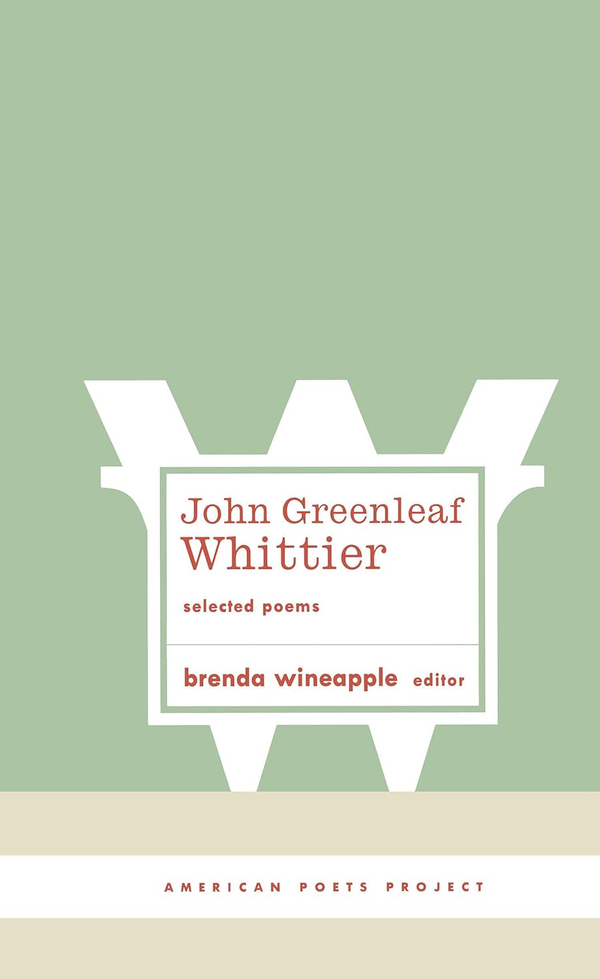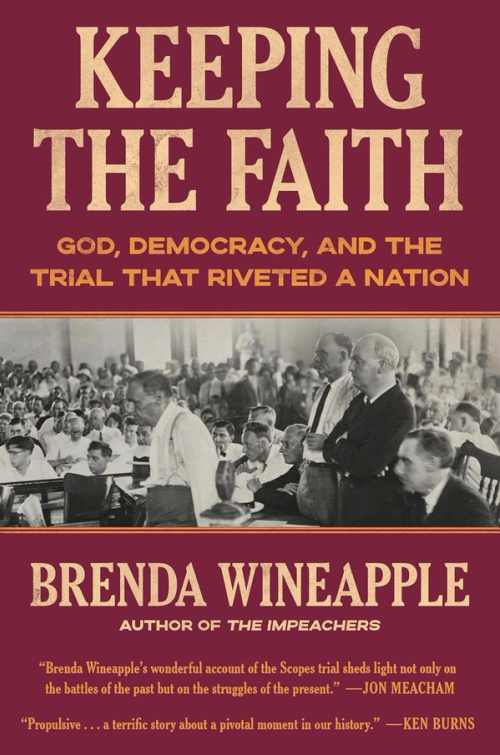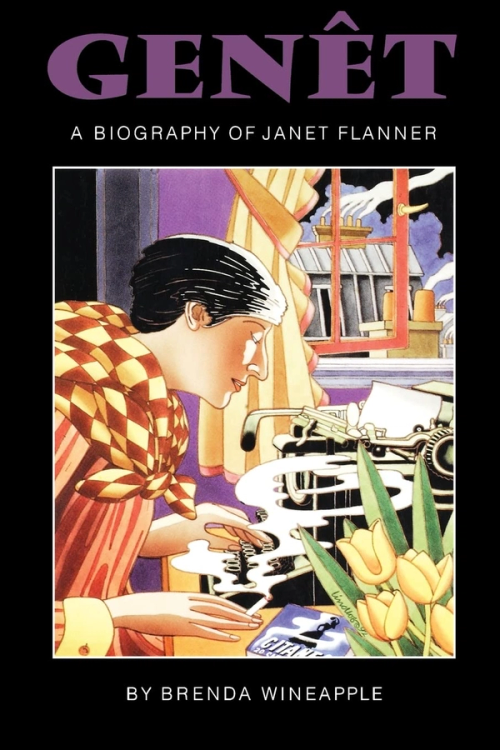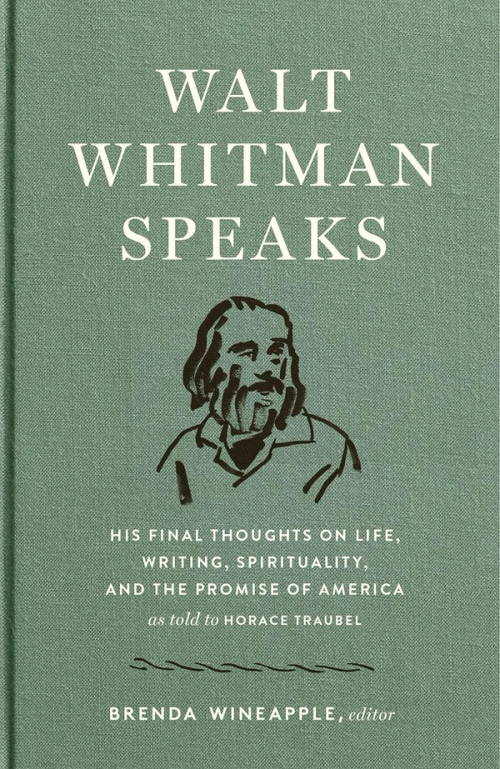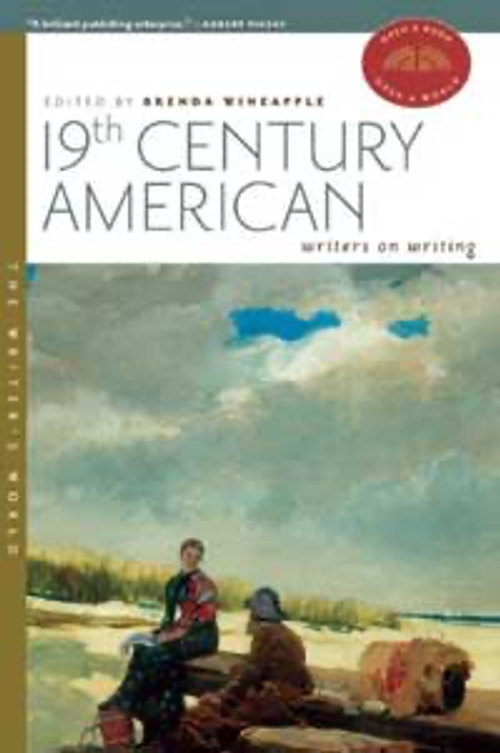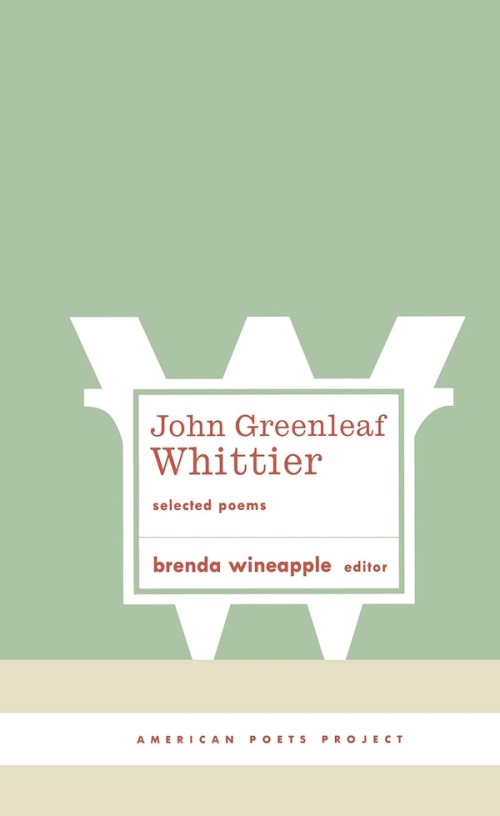- Michael Luo, The New YorkerWineapple…has a knack for producing popular histories with contemporary resonance…A briskly told chronicle.
- Ken BurnsIn this propulsive account of the 1925 Scopes Trial, Wineapple documents the antecedents that led to it and how the trial exposed fault lines in America that continue to haunt us. Clarence Darrow and William Jennings Bryan emerge as complicated and fascinating characters who embody different versions of American democracy. Keeping the Faith is a terrific story about a pivotal moment in our history and a book that illuminates the conflicts we are seeing in our country today.
Keeping the Faith
God, Democracy, and the Trial That Riveted a Nation
In this magnificent book, award-winning author of The Impeachers brings to life the dramatic story of the 1925 Scopes trial, which captivated the nation and exposed profound divisions in America that still resonate today—divisions over the meaning of freedom, religion, education, censorship, and civil liberties in a democracy.
“No subject possesses the minds of men like religious bigotry and hate, and these fires are being lighted today in America.” So said legendary attorney Clarence Darrow as hundreds of people descended on the sleepy town of Dayton, Tennessee, for the trial of a schoolteacher named John T. Scopes, who was charged with breaking the law by teaching evolution to his biology class in a public school.
Brenda Wineapple explores how and why the Scopes trial quickly seemed a circus-like media sensation, drawing massive crowds and worldwide attention. Darrow, a brilliant and controversial lawyer, said in his electrifying defense of Scopes that people should be free to think, worship, and learn according to their own values. William Jennings Bryan, three-time Democratic nominee for president, argued for the prosecution that evolution undermined the fundamental, literal truth of the Bible and created a society without morals, meaning, and hope.
In Keeping the Faith, Wineapple takes us into the early years of the twentieth century—years of racism, intolerance, and world war—to illuminate, through this pivotal legal showdown, a seismic period in American history. At its heart, the Scopes trial dramatized conflicts over many of the fundamental values that define America, and that continue to divide Americans today.
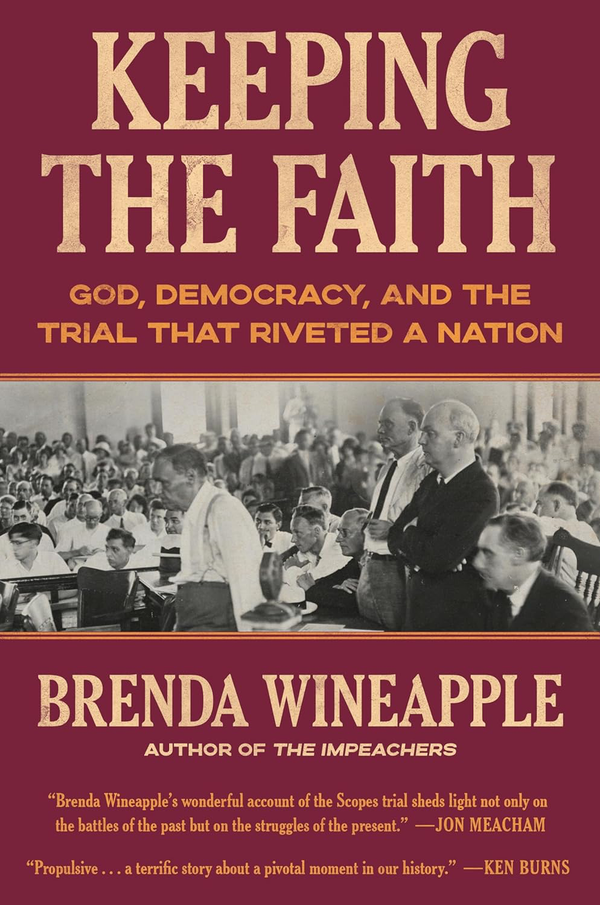
- Ron Chernow, Pulitzer Prize winning author of GrantIn this superbly lyrical work, Brenda Wineapple has plugged a glaring hole in our historical memory through her vivid and sweeping portrayal of President Andrew Johnson’s 1868 impeachment. She serves up, not simply food for thought, but a veritable feast of observations on that most trying decision for a democracy: whether to oust a sitting president. Teeming with fiery passions and unforgettable characters, The Impeachers will be devoured by contemporary readers seeking enlightenment on this issue. A landmark study.
The Impeachers
The Trial of Andrew Johnson and the Dream of a Just Nation
ONE OF THE BEST BOOKS OF THE YEAR: Jennifer Szalai, The New York Times; The New York Times Book Review; NPR; Publishers Weekly
“This absorbing and important book recounts the titanic struggle over the implications of the Civil War amid the impeachment of a defiant and temperamentally erratic American president.”—Jon Meacham, Pulitzer Prize–winning author of The Soul of America
When Abraham Lincoln was assassinated and Vice-President Andrew Johnson became “the Accidental President,” it was a dangerous time in America. Congress was divided over how the Union should be reunited: when and how the secessionist South should regain full status, whether former Confederates should be punished, and when and whether black men should be given the vote. Devastated by war and resorting to violence, many white Southerners hoped to restore a pre–Civil War society, if without slavery, and the pugnacious Andrew Johnson seemed to share their goals. With the unchecked power of executive orders, Johnson ignored Congress, pardoned rebel leaders, promoted white supremacy, opposed civil rights, and called Reconstruction unnecessary. It fell to Congress to stop the American president who acted like a king.
With profound insights and making use of extensive research, Brenda Wineapple dramatically evokes this pivotal period in American history, when the country was rocked by the first-ever impeachment of a sitting American president. And she brings to vivid life the extraordinary characters who brought that impeachment forward: the willful Johnson and his retinue of advocates—including complicated men like Secretary of State William Seward—as well as the equally complicated visionaries committed to justice and equality for all, like Thaddeus Stevens, Charles Sumner, Frederick Douglass, and Ulysses S. Grant. Theirs was a last-ditch, patriotic, and Constitutional effort to render the goals of the Civil War into reality and to make the Union free, fair, and whole.
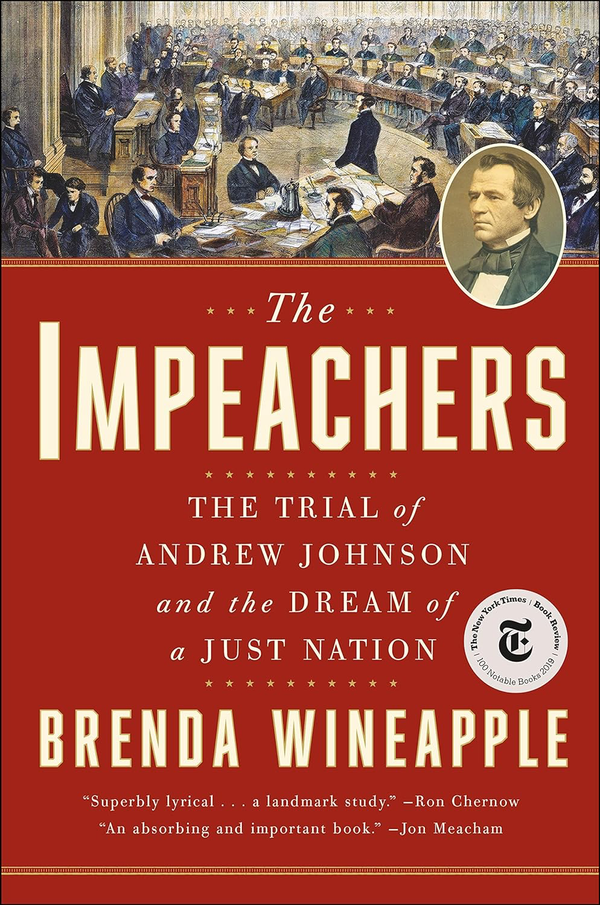
- Judith Thurman, NewYorker.comA rich, beautifully told chronicle of American politics and society between 1848 and 1877.
Ecstatic Nation
Confidence, Crisis, and Compromise, 1848-1877
A NEW YORK TIMES NOTABLE BOOK OF 2013
A KIRKUS BEST BOOK OF 2013
For America, the mid-nineteenth century was an era of vast expectation and expansion: the country dreamed big, craved new lands, developed new technologies, and after too long a delay, finally confronted its greatest moral failure: slavery. The award-winning historian and literary critic Brenda Wineapple explores these feverish, ecstatic, conflicted years when Americans began to live within new and ever-widening borders, both spiritual and geographic; fought a devastating war over parallel ideals of freedom and justice; and transformed their country, at tragic cost, from a confederation into one nation, indivisible.
Populated by idiosyncratic, unforgettable characters like P.T. Barnum, Walt Whitman, George Armstrong Custer, Elizabeth Cady Stanton, and Jefferson Davis, Ecstatic Nation moves from the zealous debates about slavery through the devastation of the Civil War. It explores the terrible complexities of Reconstruction and the fledgling chance that women would share equally in a new definition of American citizenship. Breathtaking in sweep and scope, it traces the lust for land and the lure of its beauty from a frenzied rush to riches to the displacement of Indians. And it takes us forward—toward the promise of a more perfect Union for all.
A masterful synthesis of political, cultural and intellectual history, Ecstatic Nation is a spellbinding tale of America—its glory and greed, its aspirations and humiliations—in this exhilarating and momentous period.
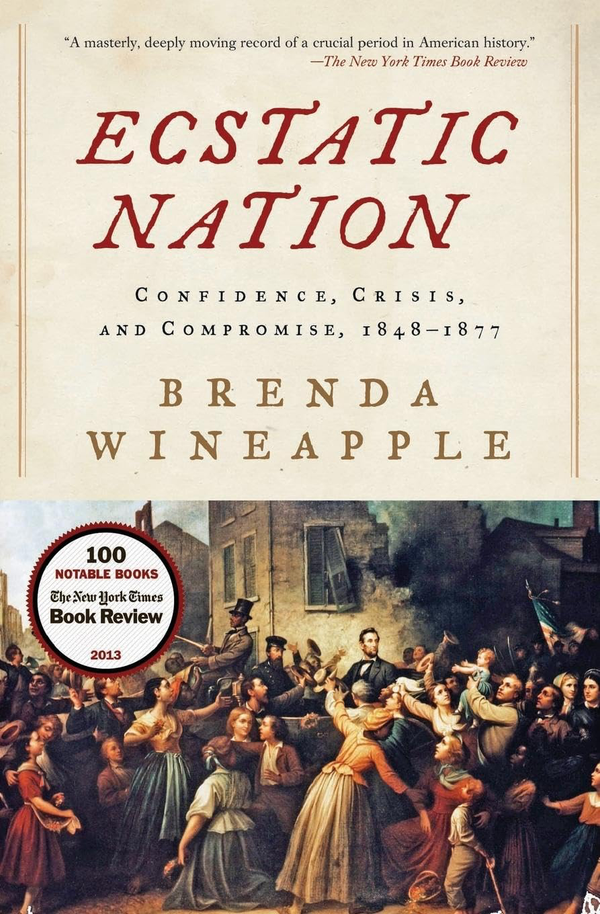
- Boston GlobeA dual biography of astonishing depth and grace.
White Heat
The Friendship of Emily Dickinson and Thomas Wentworth Higginson
Finalist for the National Book Critics Circle Award, 2008
Winner of the Arts Club of Washington’s National Award for Arts Writing
New York Times Notable Book, 2008
Best book of 2008: The Economist, The Christian Science Monitor, The Washington Post, The Kansas City Star, and Maureen Corrigan on NPR
“One of the most astonishing books about poetry I have ever read.”
–Franz Wright
A radiant portrayal of one of the most remarkable friendships in American letters—between the elusive, original poet and the radical abolitionist, reformer, and writer whom we have to thank for the publication of Emily Dickinson’s poetry.
Brenda Wineapple re-creates the extraordinary, delicate connection between these two wildly dissimilar personalities, giving us new insight into the correspondence between them, which lasted almost a quarter of a century, a correspondence that included nearly one hundred of Dickinson’s dazzling, unseen poems. We see how Colonel Thomas Wentworth Higginson, in his dual role as friend and literary adviser, counseled her against publishing, suggesting that her poetry was too unconventional, defiant, and unpredictable. And we see how, after her death, he himself coedited the first editions of her poetry—changing her distinctive punctuation—and watched them become immediate bestsellers.
Emily Dickinson and Thomas Higginson met face-to-face only twice (“I never was with any one who drained my nerve power so much,” he said), but Wineapple makes clear that their friendship nonetheless throws a brilliant light both behind the hidden door of the poet’s nimble imagination and into a corner of the noisy century that she and Colonel Higginson shared.
White Heat is a book about poetry, politics, love, and commitment; it is, as well, a story of seclusion and engagement, isolation and activism—and the ways in which they were related and separate—in the roiling America of the nineteenth century.

- M. G. Lord, ElleA riveting joint profile of Gertrude and Leo Stein… A wild, Fauve-like canvas of a time before emotional color was muted by Prozac.
Sister Brother
Gertrude and Leo Stein
Americans, expatriates, virtually orphans, Gertrude and Leo Stein lived together almost forty years collaborating in one of the great art and literary adventures of this century, and this book tells a story of that venture—and the relationship of sister and brother making it possible. For with a personality that drew people toward her, regardless of what they thought of her inventive, hermetic prose, Gertrude Stein dazzled and perplexed. And Leo Stein dazzled, too, in his own way: enigmatic, intelligent, and self-absorbed, he was one of the most crucial figures in Gertrude Stein’s early years and the original guiding spirit of the famed salon at 27, rue de Fleurus.
But crippled by his own ambition, he was doomed to failure, unlike his brilliant sister, who, from her early days as a medical student to her first days in Paris, was passionately driven toward a career in which she distinguished herself, demanding appreciation as a exceptional writer who knew precisely what she wanted. And the passion with which she expended on her work was a measure of what it meant to be a woman, a lesbian, an experimental writer and a Jew at the turn of the century.
With its wealth of new and rare material, including a heretofore unknown manuscript by Gertrude Stein, with its precise reconstruction of the famed art collection at the rue de Fleurus, and with its dashing array of characters—from Bernard Berenson to Pablo Picasso—this dual biography of Gertrude and Leo Stein offers the first glimpse into the relationship of two of the century’s most unusual and influential figures, who collaborated in one of the great art and literary journeys of this century. It is also a tale of success and failure, of experimentation and conservatism, of modernism and of a sibling rivalry that smoldered for forty years until, in 1914, the Steins broke up their household, separated, and never spoke to one another again.
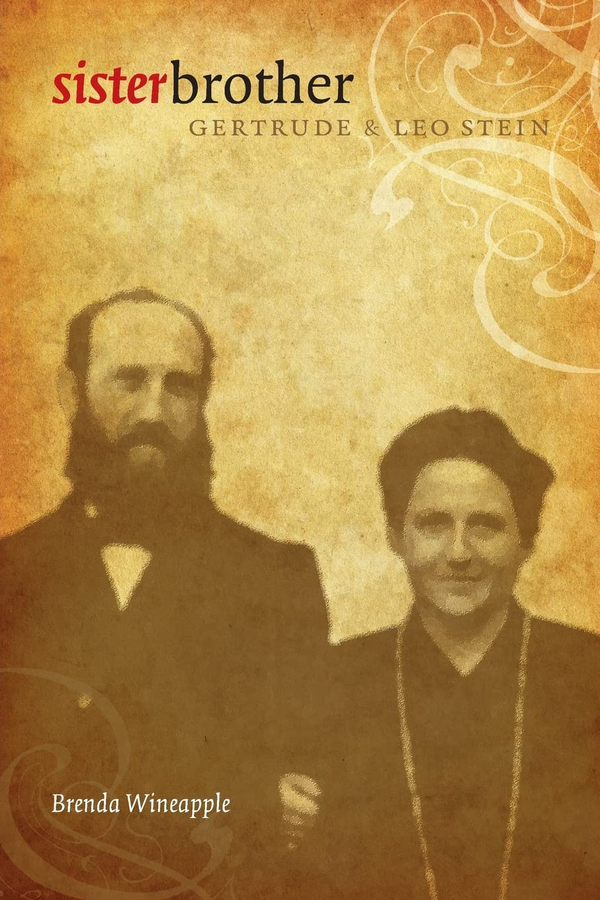
- Arnold Rampersad, Pulitzer-prize winning author of Ralph EllisonA vivid, almost cinematic portrait. Brenda Wineapple blends impressive scholarship with fine literary skills. Her Hawthorne succeeds brilliantly in clarifying our understanding of a sometimes shadowy figure who remains, despite fad and fashion, close to the core of our national heritage in fiction.
Hawthorne: A Life
Ambassador Award, Best Biography 2003
Julia Howe Award, Boston Book Club 2003
Handsome, reserved, almost frighteningly aloof until he was approached, then playful and cordial, Nathaniel Hawthorne was a mercurial and double-edged as his writing. “Deep as Dante,” Melville said.
Hawthorne himself declared that he was not “one of those supremely hospitable people who serve up their own hearts, delicately fried, with brain sauce, as a tidbit” for the public. Yet those who knew him best often took the opposition position. “He always put himself in his books,” said a sister-in-law. “He cannot help it.” His life, like his work, was extraordinary, a play of light and shadow.
He also shoveled dung in an attempt to found a new utopia at Brook Farm and then excoriated the community (or his attraction to it) in caustic satire; and the confidant of Franklin Pierce, fourteenth president of the United States and arguably one of its worst, he was also the friend of Emerson and Thoreau and Melville who, unlike them, made fun of Abraham Lincoln and who, also unlike them, wrote compellingly of women, deeply identifying with them.
Born Nathaniel Hathorne in Salem, Massachusetts, in 1804, the reluctant hero of Wineapple’s tale was always a man apart, one who believed that the writer was “a citizen of another country.“
With a taste for drama but filled with self-doubt, Hawthorne burned much of his early work, then took a job as a customs inspector “not because he needed the money or because the country ignored its artists—though both were true—but because he liked it,” as Wineapple writes, and went on to write an exquisite body of short stories and novels that, though now mainstays of American literature, sold little during his lifetime. Hawthorne, writes Wineapple, nursed a dark, critical view of life, observing that his Scarlet Letter was “a h-ll fired story, into which I found it almost impossible to throw any cheering light.” His refusal to endorse the abolitionist cause (on which point Wineapple provides a new reading of The Blithedale Romance) and his opposition to the Civil War led detractors to say that he stood for ‘doubt, darkness, and the Democratic Party.’ More difficult, Wineapple writes with much sympathy, were his relations with his children, who bore the burden of his fame and genius over the course of their troubled lives.
Wineapple navigates the high tides and chill undercurrents of Hawthorne’s fascinating life and work with clarity, nuance, and insight, all the while protecting the dark unknowable core that is quintessentially Hawthorne. In him, the quest of his generation for an authentically American voice bears disquieting fruit.
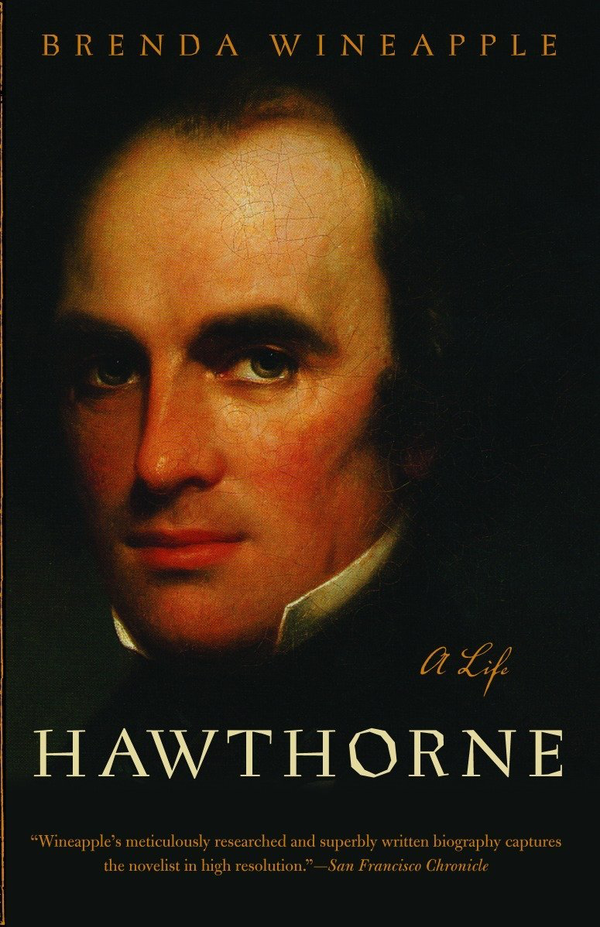
- May SartonWineapple has written a wonderfully perceptive and moving biography of Janet Flanner. I hated to finish it.
Genêt
A Biography of Janet Flanner
The daughter of a doomed Indianapolis mortician, Janet Flanner really began to live at the age of thirty, when she fled to Paris with her female lover. That was in 1921, a few years before she signed on as Paris correspondent for The New Yorker, taking the pseudonym Genêt. And then, for half a century, from 1925-1975, as the author of The New Yorker’s letters from Paris, Janet Flanner described with matchless elegance and clarity the political, artistic, and social life of France—its culture, its celebrities, its scandals, its march toward war and occupation. She knew and saw everyone and everything, from Edith Wharton to Ernest Hemingway, from Charles Lindbergh to Charles de Gaulle, and with deft precision, she even profiled Hitler.
Janet Flanner’s personal life was passionate, complex, and as colorful as her public life, for in Paris she found the freedom to live and love as she chose. Genêt chronicles Flanner’s lifelong relationship with Solita Solano and the sometimes turbulent, always deeply felt love affairs of her later life. Flanner tried to keep these relationships separate by commuting constantly from Paris to New York to Rome and back, but the balance was a precarious one not without pain.
A chain-smoking, hard-driven perfectionist, Flanner won the 1966 National Book Award for Paris Journal, her riveting account of the years just after the Occupation, and with Paris Was Yesterday, she herself became a cultural monument, known for probity and wit. In this captivating literary biography, Wineapple brings to life the intense, compelling stylist, sporting a monocle, who came to be synonymous with our bittersweet, romantic view of America in Paris between the wars.
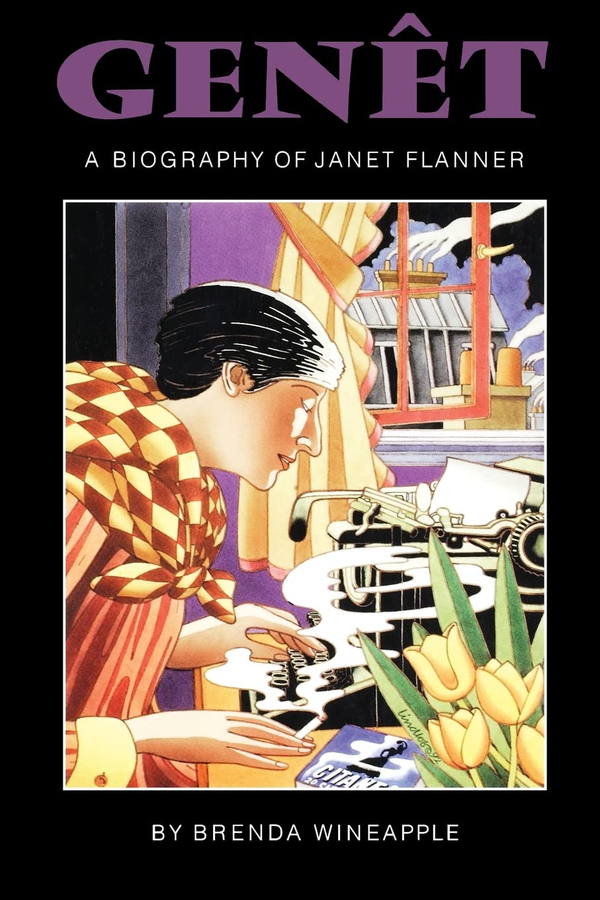
- Christoph Irmscher, The Wall Street JournalBrenda Wineapple’s pithy volume, in its bare-bones efficiency, allows us to appreciate … the best of Whitman’s off-the-cuff remarks
Walt Whitman Speaks
His Final Thoughts on Life, Writing, Spirituality, and the Promise of America
What is essential in life? How do we live most fully?
In his final years, Walt Whitman reflected on his bedrock beliefs and on the experience of a live lived passionately and with sympathy toward others and the universe itself. Speaking to the young journalist and reformer Horace Traubel, who visited him nearly every day at his home in Camden, New Jersey, Whitman offered profound perspectives about fundamental questions, encompassing the spiritual, political, and all that he had learned over seven decades of vigorous living. Traubel’s meticulous transcriptions of these conversations were eventually published in nine volumes.
In Whitman Speaks, Brenda has compiled a wide selection of Whitman’s observations that conveys the core of his ethos and the still-pulsing power of his insights. Here is Whitman as sage, visionary, and philosopher, advocate for an expansive and liberating style of being. Here, too, is the poet’s more worldly side–recalling the opprobrium heaped on Leaves of Grass for its candor and sexual frankness; culling vivid memories of Thoreau, Emerson, and Lincoln; venturing literary judgments Shakespeare, Goethe, and Tolstoy; and expressing both disappointment and hope about the nation he loved and the promise it embodies. Enriching our understanding of the greatest of American poets, this gathering of Whitman’s late thoughts is a wisdom book for the ages, enduring insights that speak eloquently and indelibly from his time to our own.
Read an excerpt at The New York Review of Books
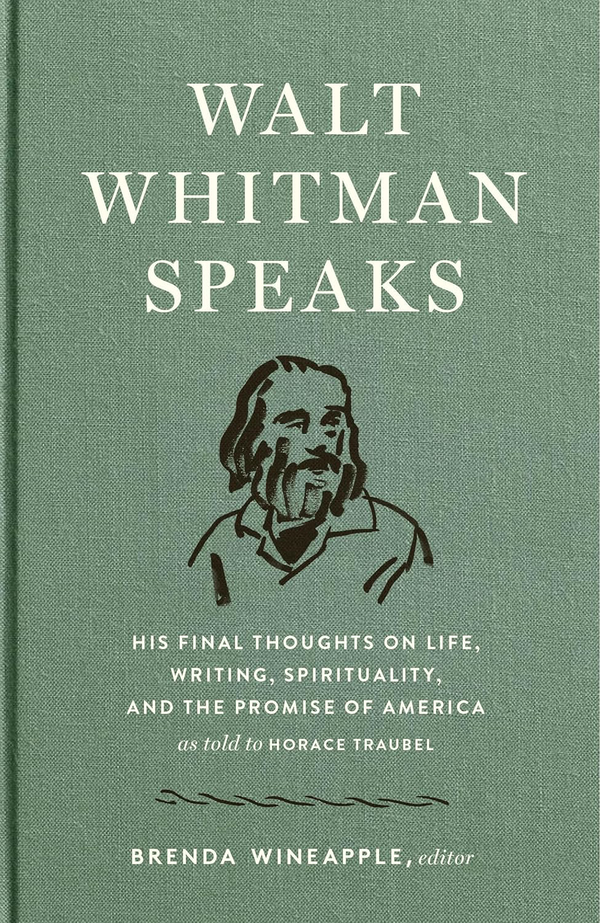
19th Century American Writers on Writing
The Writer's World
Essays, letters, poems, prose, and excerpts of interviews by 28 leading writers from throughout the century, including Ralph Waldo Emerson, Sojourner Truth, Edgar Allen Poe, Herman Melville, Henry Adams, Fanny Fern, William James, Fracer Harper, and many others. Though distinctive, these writers each had to figure out what self-reliance meant for them individually within the larger context of a relatively new country where the literature was becoming defined as “American,” even though such a label meant different things to different writers at different times. Whether they had been enslaved, or trained as preachers, or women, or descended from presidents, the writers in this collection give early illustration to the rich tapestry that was already a cultural melting pot. In a century defined at home most notably by the Civil War and abroad by an emerging industrial revolution which would position America on a world stage, each writer grappled with what it meant to be a uniquely American writer in a nation just coming-of-age.
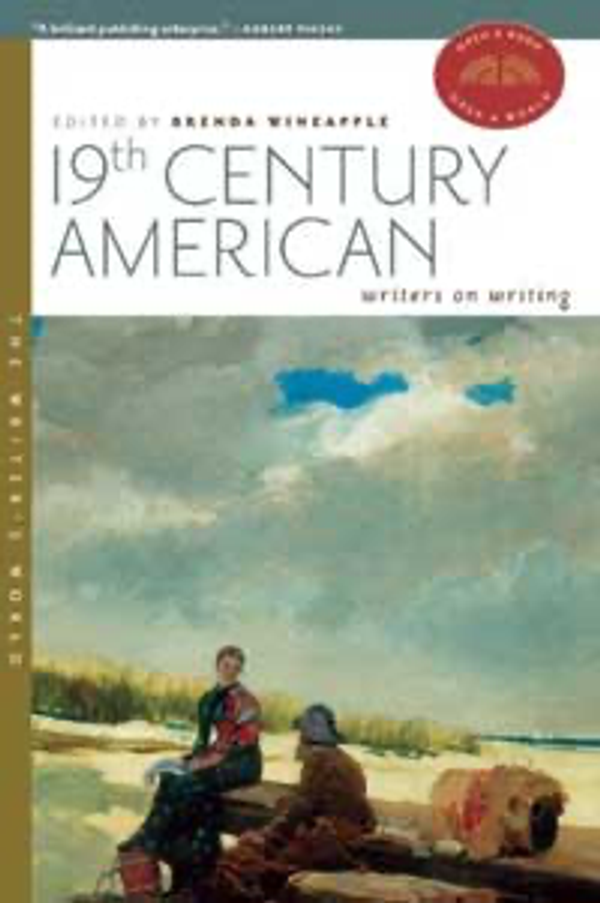
- Washington Post Book WorldJohn Greenleaf Whittier’s Selected Poems, edited by Brenda Wineapple, will come as a revelation to anyone who was force-fed Whittier in school and never turned back to him. I had an eighth-grade teacher who recited “Snow bound” with such dull zeal that I decided it was the most boring poem in American literature. Wineapple had a similar experience. “Later I realized I had been too young for the poem,” she writes in a marvelous introduction, “and now I suspect that all the schoolchildren subjected to Whittier’s assurances are themselves too callow to understand, never mind care, how memory fends off the mindlessness of winter.” We had no idea Whittier was summoning a lost rural world against encroaching blankness, a world whiting out, ‘coldness visible.’
John Greenleaf Whittier’s Selected Poems
A beloved figure in his own era——a household name for such poems as “Barbara Frietchie” and “The Barefoot Boy”—John Greenleaf Whittier remains an emotionally honest, powerfully reflective voice. A Quaker deeply involved in the struggle against slavery (he was harassed by mobs more than once) he enlisted his poetry in the abolitionist cause with such powerful works as “The Hunters of Men,” “Song of Slaves in the Desert,” and “Ichabod!”, his mournful attack on Daniel Webster’s betrayal of the anti-slavery cause.
Whittier’s narrative gift is evident in such perennially popular poems as “Skipper Ireson’s Ride” and the Civil War legend “Barbara Frietchie,” while in his masterpiece “Snow-Bound” he created a vivid, flavorful portrait of the country life he knew as a child in New England. “His diction is easy, his detail rich and unassuming, his emotion deep,” writes editor Brenda Wineapple. “And the shale of his New England landscape reaches outward, promising not relief from pain but a glimpse of a better, larger world.”
